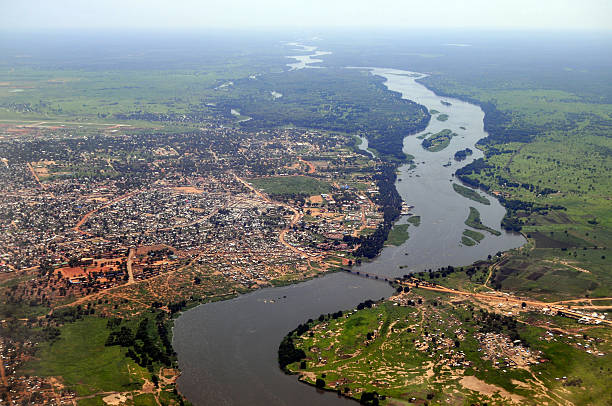
Kampala, Uganda | LOUIS JADWONG & AGENCIES | Egypt and Sudan have rejected the recently ratified agreement on The Nile River Basin Cooperative Framework (CFA) which was expected to come into force today, 13th October 2024. The Agreement aimed to among many initiatives, establish the Nile River Basin Commission to succeed all the rights, obligations, and assets of the Nile Basin Initiative (NBI).
Six riparian countries of the Nile River Basin had ratified the Agreement at a Bujumbura meeting earlier this year. The NBI member countries are Burundi, the DRC, Egypt, Ethiopia, Kenya, Rwanda, South Sudan, Sudan, Tanzania and Uganda. Eritrea participates as an observer of the NBI.
The first sign that all was not well among NBI members came Thursday this week when the 2nd Summit of the Nile River Basin Heads of State and Government, which was due at Munyonyo in Kampala, was called off. The second summit was set to be held this week (17 October 2024) to celebrate what would have been an important milestone in the history of Nile cooperation, and to flag off the transition from Nile Basin Initiative to the Nile River Basin Commission.
Egypt and Sudan issued a statement yesterday, hours to the start of the agreement, urging all Nile Basin states “to restore the integrity of the 1999 Nile Basin Initiative and refrain from unilateral actions that could exacerbate divisions between upstream and downstream countries”.
Egypt’s Ahram reports that this call came in a statement issued by the Egyptian-Sudanese Permanent Joint Technical Commission for Nile Waters (PJTC) following a crucial two-day meeting on October 11-12 in Cairo. The meeting discussed key water-related issues and concerns within the Nile Basin including recent developments related to the recent ratification of the Cooperative Framework Agreement (CFA) by some Nile Basin states.
“The Commission reaffirmed that the six-state commission established under the incomplete CFA draft cannot, under any circumstances, be regarded as representative of the Nile Basin as a whole,” Ahram reported.
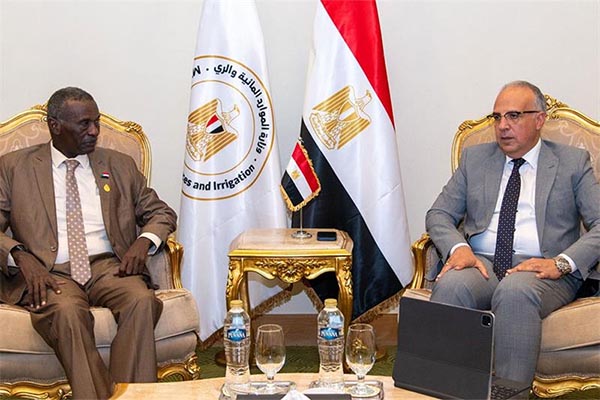
During the meeting, Egypt’s Ahram reports, PJTC emphasized that Egypt and Sudan have made concerted efforts over the years to restore cohesion and bridge divisions caused by the adoption of the non-consensual CFA draft by several upstream states.
Egypt and Sudan have long argued that the CFA violated the 1929 and 1959 Nile River agreements.
Egypt has also rejected the CFA citing the International Court of Justice (ICJ) ruling of 1989 which stipulated that water agreements enjoy the same immutability as border agreements: they cannot be revoked or amended without the assent of all parties concerned.
According to the PJTC, the 2010 CFA draft lacks the necessary consensus and fails to adhere to established international law principles and best practices, which promote sustainable development and cooperation.
The PJTC pointed to African transboundary water models, such as the Zambezi and Senegal River basins, as examples of effective collaboration.
“Egypt and Sudan have consistently advocated for a collaborative, all-inclusive mechanism among Nile Basin states, stressing the importance of prior notification, consultations, and scientific assessments of the impacts of water projects, however, their calls for constructive engagement have not been met with positive responses,” the statement read.
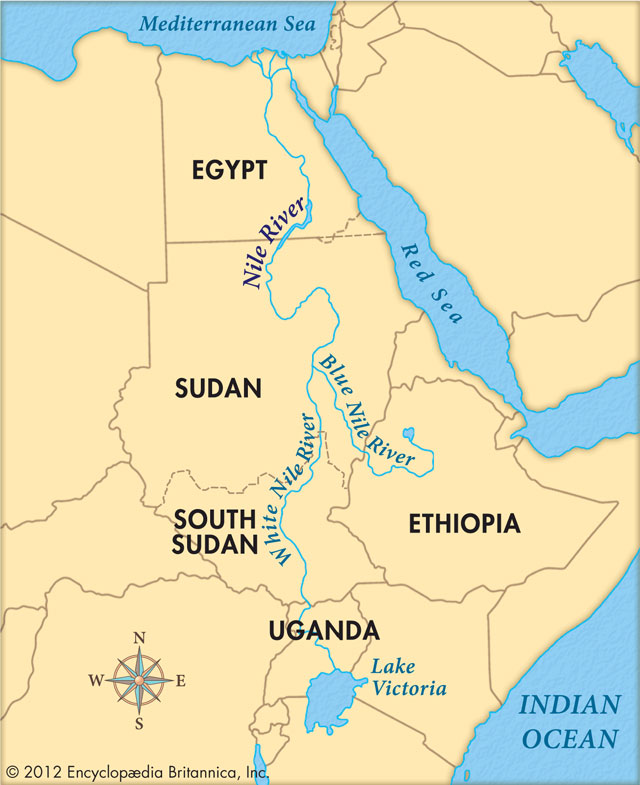
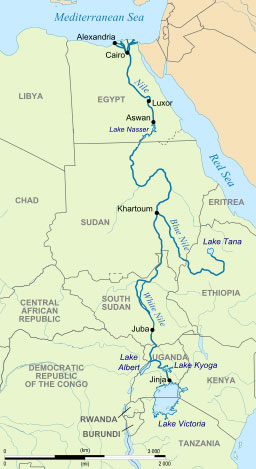
Both countries reiterated their commitment to cooperating with all Nile Basin nations, in line with internationally recognized principles that safeguard the interests of all parties while preventing harm to any riparian state, the statement added.
Egypt and Sudan reaffirmed that the 2010 CFA, initially signed by four upstream states, is not binding on them, stressing it contravenes customary and conventional international law.
Egypt and Sudan emphasized in the statement that the six-state commission established under the incomplete CFA draft cannot represent the entire Nile Basin.
They expressed their belief that restoring inclusivity within the initiative is the best path toward achieving a comprehensive and permanent framework for Nile Basin cooperation.
Status of the CFA
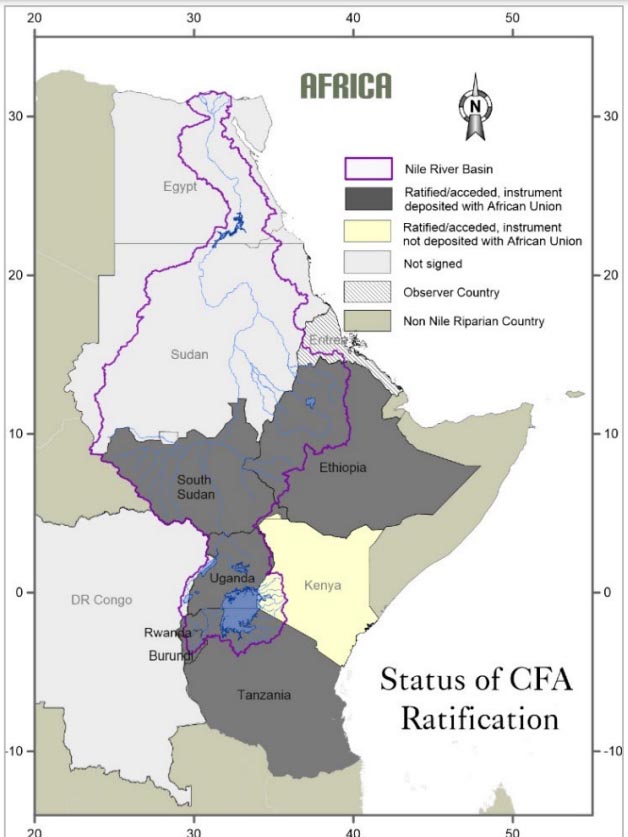
Despite the development in Cairo, the Nile Basin Initiative (NBI) went ahead on Sunday to announce the entry into force of the Nile River Basin Cooperative Framework agreement.
“Today, October 13,2024 we witness a defining moment in the history of the Nile Basin and in the broader story of the Nile transboundary water cooperating. Today marks the official entry into force of the Agreement….also known as the CFA. The status of the deposition of instruments of ratification or accession to the CFA and the date of entry into force of the CFA was formally confirmed by the African Union (the Depository of the CFA) on 4 September, 2024, in line with Articles 43 and 45 of the CFA.”
President Museveni has in the past month made efforts to reconcile members, including sending Special Presidential Advisor and CDF of UPDF Gen Muhoozi Kainerugaba to Cairo, Egypt insist they have full control on matters related to the waters of the Nile.
Museveni has previously warned the Egyptian government against uttering ‘chauvinistic statements’ in regard to the use of the River Nile waters, which escalated after the building of the multi-billion dollar 6000 MW dam—the Great Ethiopian Renaissance Dam.
Museveni argued that, “The Egyptians think that the threat of the Nile is building dams on it…The biggest threat of the Nile is the continued underdevelopment of countries in the tropics. No African wants to hurt Egypt, however, Egypt cannot continue to hurt Black Africa.”
Ugandan President Museveni said then that the loss of forest cover for wood fuel by populations of the upper stream riparian countries was a result of not utilizing the Nile to build hydro-power dams to provide cheap electricity.
Museveni called on Egypt to shift its focus toward increasing the quantity of water in the Nile rather than strictly adhering to the Nile Waters Agreements, which have restricted equitable use of the river across the basin.
My recent meeting with my Egyptian uncle, H.E. Abdel Fattah El-Sisi, has convinced me that Egypt and Uganda have strong historical and blood relations. I always learn a lot from him. He is a wise man. Longlive our cooperation. pic.twitter.com/efjG2Vlgt6
— Muhoozi Kainerugaba (@mkainerugaba) October 4, 2024
PHOTOS: Uganda, Egypt Bolster Ties as Gen Kainerugaba Meets President Al-Sisi https://t.co/Bf6UR2krxm pic.twitter.com/rFz1Wd6rfr
— The Kampala Post (@KampalaPost) October 3, 2024
Dear General @mkainerugaba, #Ethiopia is fully prepared to welcome you with great honour. I assure you of Ethiopia’s unwavering commitment to strengthening our relationship further @PMEthiopia @mfaethiopia @StateHouseUg https://t.co/vMPe0ZovYL pic.twitter.com/i4n5Gi1GJK
— Etsegenet Bezabih Yimenu (@EtsegenetYimenu) October 4, 2024
Press release from #Egypt and #Sudan, who generates nearly 0% of the #Nile water telling the rest of the basin countries why they are entitled to use 100% of the water. Literally.
This sounds crazy as it should because no where in the world there is an example where two… pic.twitter.com/tlIr0GqjQq
— Tirusew Asefa, Ph.D., P.E., BC.WRE., F.ASCE (@TirusewAsefa) October 12, 2024
Key events related to the development of the CFA
| Location and date | Activity | Outcome |
| 1997 | Nile-COM Meeting | Countries appoint negotiation teams and start negotiations on the text of the CFA |
| Entebbe June 24-25, 2007 | The 15th Nile-COM meeting | Nile Countries reach agreement on the text of all but one sub-article 14(b). Nile- refers the matter of article 14(b) to the Heads of State and Government for resolution |
| Kinshasa May 22, 2009 | Extra-Ordinary
Meeting of Nile-COM |
7 member countries agree to annex Article 14b for later resolution by NRBC; reservation by Egypt; The Sudan not present at time of decision, but subsequently expressed its reservation. |
| Nairobi July 3, 2009 | Meeting of country negotiators | 7 countries agree on a cleaned text; reservations by Egypt and The Sudan. |
| Alexandria Meeting July 27-28, 2009 | 17 th Nile-COM Meeting | Joint decision to allow for more time to seek joint agreement. |
| Entebbe, September 2009; Dar es
Salaam, December 2009 Sharm El Sheikh, April 2010 |
Joint Nile-TAC and
Negotiators Committee |
Deliberations on options to move forward together |
| Sharm El Sheikh April 13, 2010 | Extra-ordinary Nile-
COM Meeting |
7 Countries agree to open CFA (cleaned text) for signature; position rejected by Egypt and The Sudan |
| Entebbe May 14, 2010 | CFA opened for signature | 4 Countries (Ethiopia, Rwanda, Tanzania, and Uganda) sign the opened CFA in Entebbe, Uganda |
| Nairobi May 19, 2010 | Signature | Kenya signs the CFA in Nairobi, Kenya |
| Bujumbura February 28, 2011 | Signature | Burundi signs the CFA in Bujumbura, Burundi |
| Addis Ababa June 25, 2013 | Ratification | Ethiopia ratifies the CFA |
| Addis Ababa September 2, 2013 | Deposition | Ethiopia deposits CFA ratification instrument with the African Union Commission |
| Kigali May 21, 2014 | Ratification | Rwanda ratifies the CFA |
| Addis Ababa May 26, 2014 | Deposition | Rwanda deposits CFA ratification instrument with the African Union Commission |
| Dodoma May 23, 2016 | Ratification | Tanzania ratifies the CFA |
| Addis Ababa June 28, 2016 | Deposition | Tanzania deposits CFA ratification instrument with the African Union Commission |
| Entebbe June 17, 2017 | Summit | First Summit of Nile Basin Heads of State and Government held in Entebbe, Uganda |
| Kampala August 15, 2019 | Ratification | Uganda ratifies the CFA |
| Addis Ababa October 8, 2019 | Deposition | Uganda deposits CFA ratification instrument with the African Union Commission |
| Bujumbura September 25 2023 | Ratification | Burundi ratifies the CFA |
| Addis Ababa October 19 2023 | Deposition | Burundi deposits CFA ratification instrument with the African Union Commission |
| Juba August 1, 2024 | Accession | South Sudan accedes to the CFA. |
| Addis Ababa August 14, 2024 | Accession | South Sudan deposits Accession Instrument with the African Union Commission. |
****
SOURCE: NILE BASIN INTITIATIVE (NBI) media
 The Independent Uganda: You get the Truth we Pay the Price
The Independent Uganda: You get the Truth we Pay the Price



